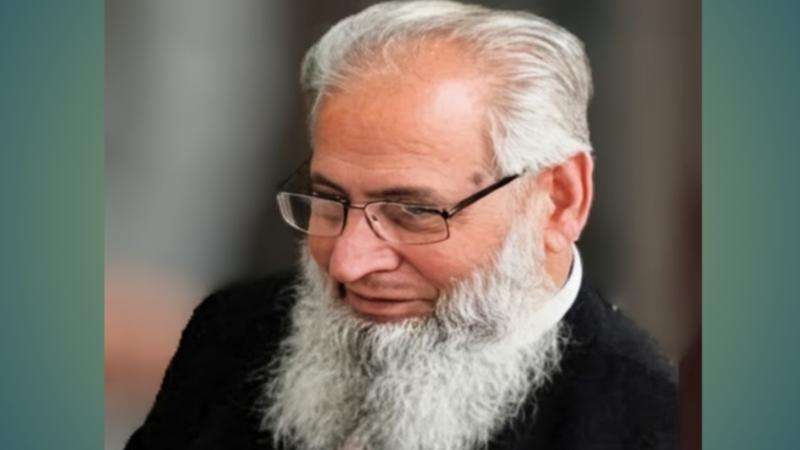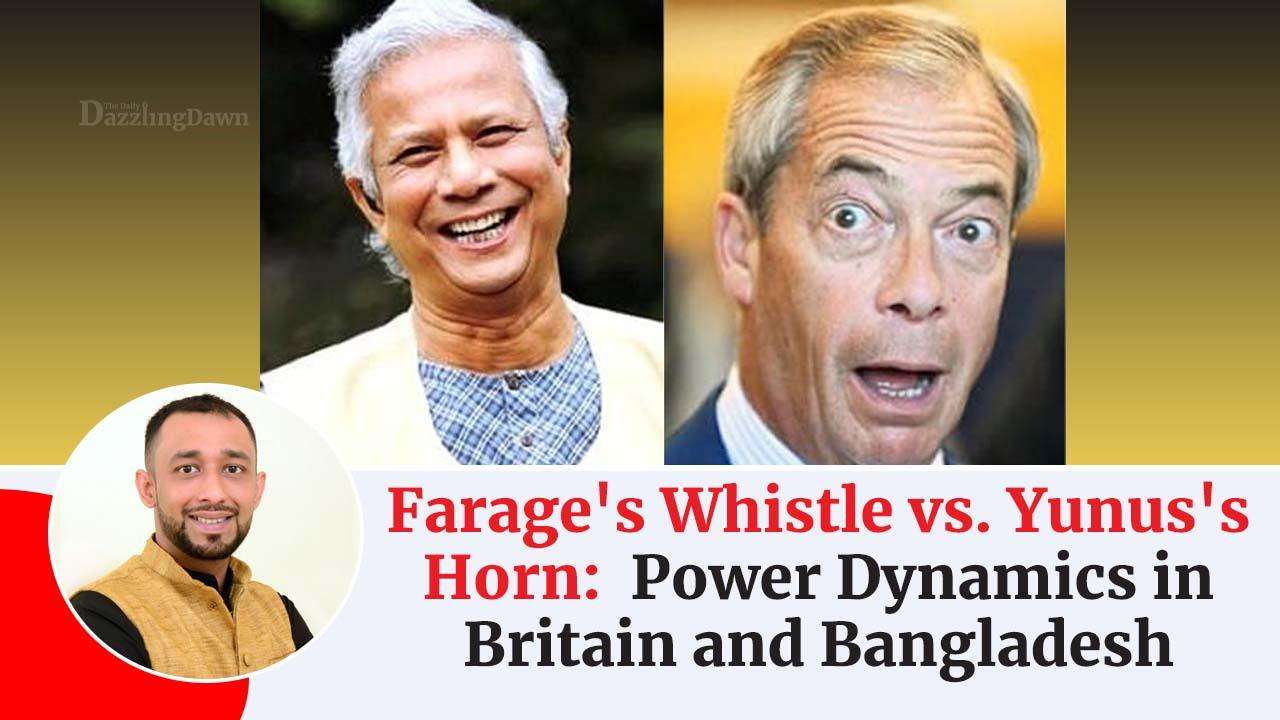There was a change of power in Britain and Bangladesh last July. The Labour Party and Dr. Yunus' government came to power, respectively. The Labour Party, led by Keir Starmer, came to power with huge public support after defeating the Conservative Party, which had been in power for 14 consecutive years, with a huge margin. In just five months, the popularity of the British Prime Minister and the Labour Party has plummeted, according to various public opinion polls. The current British government has broken all previous records of an elected government becoming unpopular in such a short period of time. Their biggest promise was to revive Britain's struggling economy. But since they came to power, the economic crisis has multiplied, as is evident in all the latest statistics. Unemployment is rising; factories, small and large, from supermarkets to small businesses, are closing. Thousands of people have lost their jobs in just five months. Foreign investors are gradually losing interest in Britain. As a result, public support for the government and the prime minister is gradually decreasing.
Many fear that even as support for the Labour Party declines, it is not being added to the deposed Conservatives, Labour's main challengers. That support is being added to Nigel Farage, a controversial anti-immigration figure accused of racist behavior. The public's distrust of the two major parties and the rise of the far-right to the right are creating a new polarization in British politics. Citizens across Europe are frustrated by the high unemployment and benefit dependency of their population, the dwindling amount of government assistance, and the falling standard of living. Capitalizing on that frustration and fueling anti-immigration sentiment, the anti-immigration and anti-right wing has triumphed in Europe in recent years. In Britain, too, the sloganeering of radical and flamboyant nationalists, who have capitalized on the elements of that negative politics, is now rapidly rising. Like most countries in the world, the politics of left-wing political power voting is dying in Britain. A leader like Jeremy Corbyn has no place in the Labour Party either. The left parties have gradually leaned towards the right-wing policies in and out to increase their vote bank. The Labour Party has also come to power after a long time by following that path. However, after coming to power, it is running the country in a circle of extreme futility. The situation has become such that the prime minister has delayed some local government elections to avoid possible disastrous results for his party.
The right has followed the same path, leaning even further to the right, only to retain the votes of the far right. But even then, Britain's largest traditional right-wing party, the Conservative Party, has not been saved. A few days ago, Nigel Farage was seen as an entertaining character in British politics. Farage has stood for election to the House of Commons eight times. He contested six general elections and two by-elections and became an MP for the first time only in 2024. Farage's newly formed party, Reform UK, is now competing with the Conservative Party, a political party founded in 1830, in terms of the number of members. Despite installing a non-white female leader after an Indian, the party is unable to regain public support.Both the country's oldest and largest parties are starting the new year with the discomfort of losing their largest public support in the shortest possible time.
2
Dr. Yunus came to power in Bangladesh not through elections but through a student and public uprising, very close to the time when the Labour Party came to power in Britain. On the first day of his coming to power, I wrote that I would like to congratulate Dr. Yunus after seeing the work of his government. Unlike the Awami League's sixteen-year-long autocracy, now is not the exact time to evaluate the activities of a five-month-old government that has no direct experience with politics or ruling a country. Even now, hundreds of TikTokers and YouTubers are looking forward to becoming advisors to the government, thinking that they are more suitable for the position. The new class of old hunters, who claim credit for the success of the downfall of Sheikh Hasina's tyranny, are desperate to take the place of the fugitive touts of the Awami League in all sectors. The color thieves who remained silent during the July revolution are, as usual, busy with their opportunism. Sadly, this government has not been able to maintain or demonstrate any character or policy of public aspiration. Instead of taking a unified stand on a national or all-party basis and establishing law and order and justice in administration, the tendency to keep all parties happy is visible. It is true that those running this government are not politicians; they have no experience in running the country.
Admitting that truth, the sky-high public expectations that people had for this government in the beginning are now clearly disappointed due to its many shortcomings. Despite the military's support, the law and order situation, the administration's lack of coordination, along with the rising price of everything, are still evident. The pace of economic policy meant that the pound was trading at 159 taka against the pound two weeks ago. Today it is 154.50 taka.
Dr. Yunus's personal, charismatic influence in the field of diplomatic relations with neighboring countries is still invisible. From day one, Dr. Yunus and his advisors have been talking about meaningful positive reforms—resets—in all sectors of the country. However, even by the end of the year, apart from the repetition of some routine committees and reports, there has been no significant progress in the desired reform process.
This government has come to power to organize a fair and free election and create the necessary environment for it in the context of the vote-rigging and destruction of all electoral democratic institutions by the previous Sheikh Hasina government.
But even over the past five months, the head of this short-lived government, Dr. Muhammad Yunus, has not made it clear when they will hold elections or how long they want to remain in power.
From 1757 to 1947, the British ruled what is now Bangladesh for 190 years. Then, from 1947 to 1971, Bengal was part of Pakistan under British law and governance for another 24 years. Today's times have placed the course of Bangladesh, which was ruled for almost two hundred years, and the current politics of the exploitative Britain of that time in a strange parallel. Long writing is now a symptom of the impatience of the scrolling eyes, from readers accustomed to watching Reels and TikToks to restless viewers. The urge to steal sleep time in the middle of the night in Britain and write observations in one sitting is also suppressed for good reason. I believe that the pure optimism of people, who are never opportunists, partisans, or brokers, can never be defeated by the prevailing despair.
---
Author: Journalist, political analyst








.svg)


